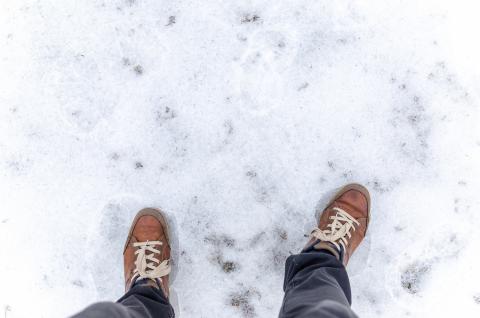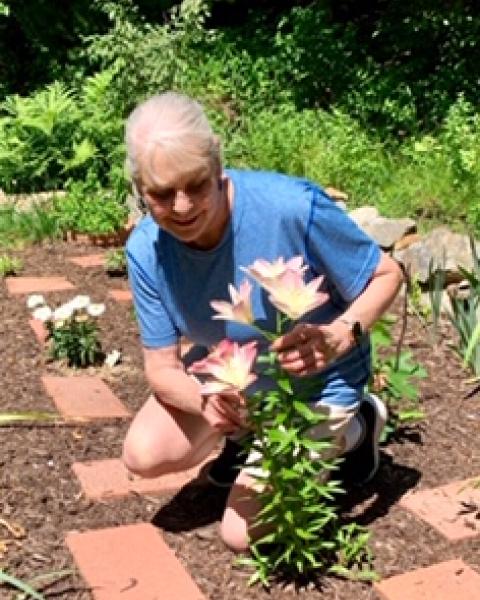Breaking the Ice

Ice is great as cubes in your drink or when skating on a frozen pond. But, ice is treacherous when disguised as “black ice”, often causing falls and even bone breaks requiring hospital visits.
Fortunately, there are responsible steps people can take to prevent spills on ice. The first and most environmentally safe is shoveling snow as soon as it stops to prevent the formation of hard-packed, icy layers. For a bit more punch, you can use a snow blower – electric is a more environmentally friendly choice.
The next best option is using sand, non-clumping kitty litter, wood shavings, fireplace ash, or bird seed to add grip to the pathway. These grits can be messy sometimes, but they are safe for pets, plants, gardens, and waterways.
Caution is strongly advised for homeowners planning to use salt-based deicers. Too much salt damages or kills plants in various ways, whether dispersed as road spray from cars, or from seeping into water sources or soils. For instance, salt spray on evergreen plants browns or burns leaves and needles, causing dieback of new growth. High levels of salt in the soil prevent roots from taking up water and nutrients – called “physiological drought” – stunting plant growth. Among other problems caused by salt overuse are canopy decline, reduced plant vigor, and leaf scorch.
There are six common types of ice-melt — calcium chloride, calcium magnesium, magnesium chloride, potassium chloride, urea, and sodium chloride/rock salt — so look closely at the list of compounds before buying. Sodium chloride is the worst of these. It’s cheap, but may harm plants, wood, and hard surfaces.
Calcium chloride or magnesium chloride can dissolve ice in sub-zero temperatures, -25 and -13, respectively. Calcium chloride is fast-acting, but can ruin surfaces such as asphalt and concrete, and also injures grass and plants - especially if over-applied. In fact, over-application of any of these ice melts is harmful, so read the directions and apply accordingly.
A pet’s paws can suffer inflammation from treading on salt. Magnesium chloride, potassium chloride, and urea are advertised as safe for pets. These products would be a good mix with the grit substances mentioned above. But beware, don’t over-apply because they can be bad news for gardens and plants.
Of course, there are all kinds of ways to treat ice, from making your own brine solution to pouring hot water on icy surfaces if temperatures are above freezing. There are also driveway and sidewalk heating mats you can install to keep snow and ice at bay, but they are costly. When you do walk outside on icy surfaces, wear ice spikes on your boots.
Safety is the most important consideration, but remember these tips to keep your pathways safe while keeping your plants, animals, and environment healthy too.
UNH Cooperative Extension Master Gardener volunteers share information about home, yard, and garden topics with the people of New Hampshire. Got questions? Master Gardeners provide practical help finding answers to your questions through the Ask UNH Extension Infoline. Call toll free at 1-877-398-4769, Monday to Friday, 9 a.m. to 2 p.m., or e-mail us at answers@unh.edu.
Do you love learning about stuff like this?
SUBSCRIBE TO Granite State Gardening newsletter
Got questions? The UNH Extension Yard and Garden Infoline offers practical help finding answers for your yard and garden questions.
Call toll free at 1-877-398-4769, Monday to Friday, 9 a.m. to 2 p.m., or fill out webform.

